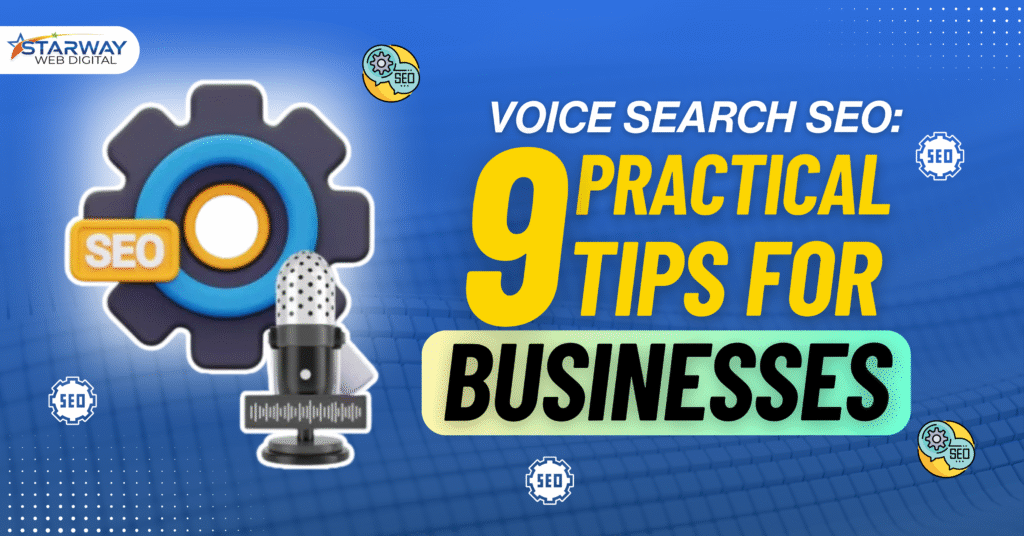Voice search is rapidly changing the way customers discover, research, and choose businesses online. With more users relying on Alexa, Siri, Google Assistant, and even conversational AI models like ChatGPT and Perplexity, companies need to rethink their SEO strategies. This new era brings together voice-friendly content, local optimization, and AI-powered visibility. Ready to get found in more “Hey Google” and “Ok Siri” moments? Here are 9 voice search SEO tips that really work—plus advanced advice leveraging AEO (Answer Engine Optimization), GEO (Generative Engine Optimization), and large language models (LLMs).
1. Optimize for Conversational Queries
Voice search queries are longer, more natural, and often phrased as questions (“How do I…” or “What’s the best…”). Build pages around conversational, long-tail keywords and common customer questions. Use natural language that reflects how people actually speak instead of just short, robotic phrases.
2. Target Featured Snippets and Position Zero
Voice assistants prefer content that provides clear, concise answers to questions—often from featured snippets (“position zero”) at the top of Google. Structure your articles with direct answers under question-based subheadings and use lists, tables, or bullet points for voice-friendly delivery.
3. Double Down on Local SEO
Most voice searches are location-specific (think “nearest Italian restaurant” or “coffee shop near me”). Make sure you claim and optimize your Google Business Profile, use business schema, and embed city and “near me” keywords. High-quality local reviews and updated NAP (name, address, phone) listings are a must for top local visibility.
For specifics on hyper-local strategies, check out:
How AEO & GEO Are Changing SEO in 2025
4. Create Mobile-First, Fast-Loading Pages
Voice searches almost always happen on a mobile device. A slow, clunky page ruins the experience (and your search rankings). Optimize images, minimize code, and test on multiple devices to ensure your mobile users get lightning-fast load times.
5. Use Structured Data and Schema Markup
Mark up your business details, FAQs, reviews, and product/service info using schema.org structured data. This helps search engines and voice assistants pull accurate answers and display your details in rich search results. Find out how schema connects to AEO, GEO, and LLMs in content here:
How to Optimize Content for Generative AI, AEO, GEO & LLMs
6. Embrace AEO: Answer Engine Optimization
AEO is about structuring your site and content so that voice assistants, smart displays, and LLMs can deliver your answers directly to users. Use Q&A-style layouts with question-based headings, clear definitions, and succinct, trustworthy answers. This increases your chance of being cited by both search engines and conversational AIs.
7. GEO & LLM Optimization: Think Beyond Google
Today’s advanced AIs (like ChatGPT, Perplexity, and Gemini) use GEO techniques—optimizing content for entity recognition, context, citations, and semantic clarity. Provide short summaries, clear source links, and content clusters that make your business easy to reference and quote in conversational answers. Learn more about GEO at:
What Is Generative Engine Optimization (GEO)?
8. Build Content That Gets Cited by LLMs
AI models don’t rank websites—they cite clear, reputable content. Strengthen your brand’s digital footprint by publishing expert answers, unique data, reviews, and content with tight topical focus. The more trustworthy and quotable your page is, the more likely it is to be included in AI-generated answers. See:
How Can Your Business Rank in ChatGPT, Perplexity, and Other LLMs?
9. Regularly Update and Monitor Your Visibility
Voice search SEO is evolving fast. Audit your site and local listings regularly, monitor which pages get featured in answers, and keep optimizing your content structure and citations for voice and AI-powered discovery.
Ready to Future-Proof Your Business with Voice Search SEO?
Voice search, AEO, GEO, and large-scale AI models are rewriting the rulebook for reaching your customers online. By following these 9 practical tips, your business will not only rank high in spoken search but also get featured in the answers customers hear, see, or chat with on every device.
Need help guiding your SEO strategy for a voice- and AI-driven future? Starway Web Digital can help you implement advanced optimization, structured data, and generative strategies that keep your business top of mind—and top of search—wherever your customers are asking.




